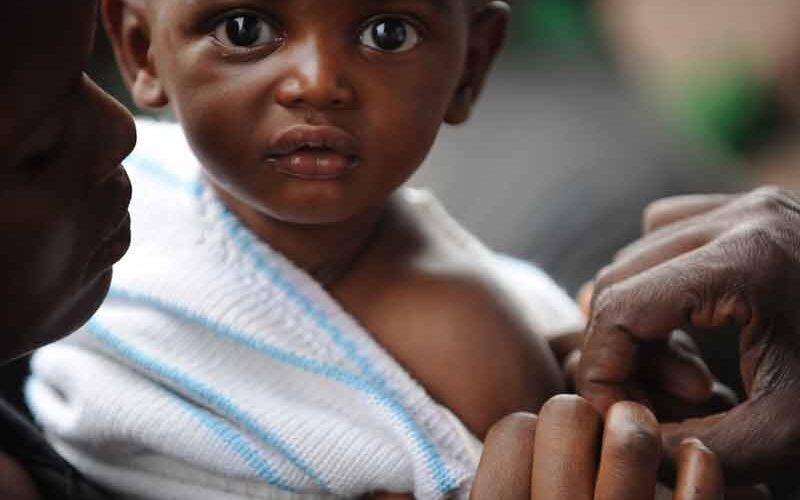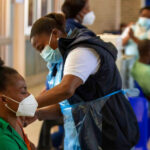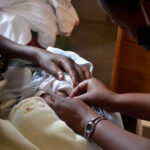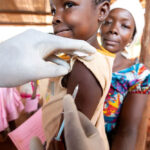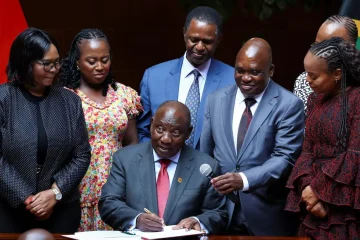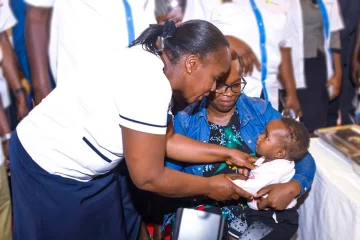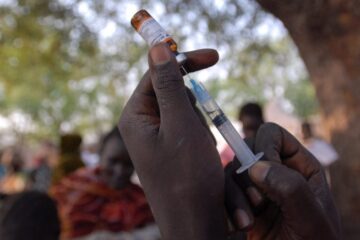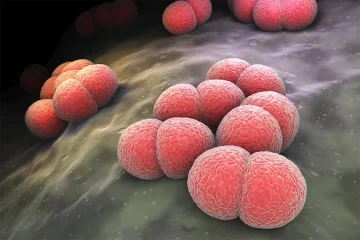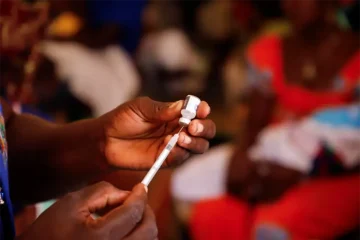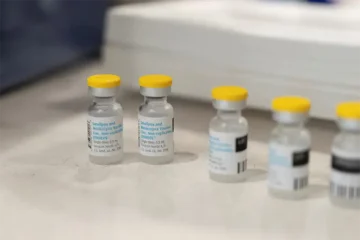AFRICAN Vaccination Week took place from 24 to 30 April, and this year marks the 50th anniversary of the Expanded Program on Immunization (EPI) launched by the Department of Health which aims to provide life-saving vaccines to every child, regardless of their location or socioeconomic status. Since its inception, the EPI has made outstanding achievements, including eradicating smallpox in 1978 and the current drive to eradicate poliomyelitis. Through immunisation campaigns, there have been significant reductions in morbidity and mortality, particularly in children, due to vaccine-preventable diseases like tuberculosis, poliomyelitis, hepatitis, influenza, measles, rubella, yellow fever, tetanus, diphtheria, and pertussis (whooping cough).
According to Dr Lourens Terblanche, Medical Head for Vaccines at Sanofi South Africa: “The 50th anniversary of the EPI is particularly important as it highlights the collective action needed to increase vaccine coverage rates to protect people of all ages against vaccine-preventable disease, raise awareness of the value of vaccines and immunisation, and facilitate support to all stakeholders instrumental in implementing high quality immunisation programs.”
The goal of African Vaccination Week is for more people to be protected from vaccine-preventable diseases, to encourage the use of vaccines, and protect ourselves and our communities. Today, vaccines have an excellent safety record and most “vaccine scares” have been shown to be false alarms.3
However, misguided safety concerns in some countries have led to a fall in vaccine coverage rates, causing the re-emergence of whooping cough and measles.3 Vaccination significantly reduces disease, disability, death, and health inequities globally:3 Vaccination not only protects vaccinated individuals but can also contributes to broader community health through herd immunity. This indirect protection is especially beneficial in low-income settings where direct vaccine coverage may not be comprehensive.
In South Africa, the national immunisation program provides vaccinations against various diseases free of charge at government clinics, starting from birth up to certain adult populations.
“Different vaccines work in different ways, but most vaccines help the body’s immune system to learn how to fight specific disease-causing organisms,” says Terblanche. “It typically takes a few weeks for protection to develop after vaccination, and certain vaccines also require more than one dose to provide optimal protection. Some vaccines for serious diseases like tetanus, diphtheria and whooping cough require booster doses to maintain immunity or protection,” says Terblanche.
Terblanche says whooping cough can cause serious and sometimes deadly complications in babies and young children. “The majority of cases of whooping cough occur in infants less than 2-3 months old, and the highest number of deaths are also seen in this age group. The situation is complicated by the fact that vaccinating infants themselves against whooping cough can only start from 6 weeks of age, which is why strategies to protect them in this window of vulnerability is so important.”
This African Vaccination Week, let’s protect our communities and ensure everyone has the chance to lead a healthy life by getting vaccinated.
African Vaccination Week takes place from 24 to 30 April, and this year marks the 50th anniversary of the Expanded Program on Immunization (EPI) launched by the Department of Health which aims to provide life-saving vaccines to every child, regardless of their location or socioeconomic status. Since its inception, the EPI has made outstanding achievements, including eradicating smallpox in 1978 and the current drive to eradicate poliomyelitis. Through immunisation campaigns, there have been significant reductions in morbidity and mortality, particularly in children, due to vaccine-preventable diseases like tuberculosis, poliomyelitis, hepatitis, influenza, measles, rubella, yellow fever, tetanus, diphtheria, and pertussis (whooping cough).
According to Dr Lourens Terblanche, Medical Head for Vaccines at Sanofi South Africa: “The 50th anniversary of the EPI is particularly important as it highlights the collective action needed to increase vaccine coverage rates to protect people of all ages against vaccine-preventable disease, raise awareness of the value of vaccines and immunisation, and facilitate support to all stakeholders instrumental in implementing high quality immunisation programs.”
The goal of African Vaccination Week is for more people to be protected from vaccine-preventable diseases, to encourage the use of vaccines, and protect ourselves and our communities. Today, vaccines have an excellent safety record and most “vaccine scares” have been shown to be false alarms.3
However, misguided safety concerns in some countries have led to a fall in vaccine coverage rates, causing the re-emergence of whooping cough and measles.3 Vaccination significantly reduces disease, disability, death, and health inequities globally:3 Vaccination not only protects vaccinated individuals but can also contributes to broader community health through herd immunity. This indirect protection is especially beneficial in low-income settings where direct vaccine coverage may not be comprehensive.
In South Africa, the national immunisation program provides vaccinations against various diseases free of charge at government clinics, starting from birth up to certain adult populations.
“Different vaccines work in different ways, but most vaccines help the body’s immune system to learn how to fight specific disease-causing organisms,” says Terblanche. “It typically takes a few weeks for protection to develop after vaccination, and certain vaccines also require more than one dose to provide optimal protection. Some vaccines for serious diseases like tetanus, diphtheria and whooping cough require booster doses to maintain immunity or protection,” says Terblanche.
Terblanche says whooping cough can cause serious and sometimes deadly complications in babies and young children. “The majority of cases of whooping cough occur in infants less than 2-3 months old, and the highest number of deaths are also seen in this age group. The situation is complicated by the fact that vaccinating infants themselves against whooping cough can only start from 6 weeks of age, which is why strategies to protect them in this window of vulnerability is so important.”
This African Vaccination Week, let’s protect our communities and ensure everyone has the chance to lead a healthy life by getting vaccinated.

